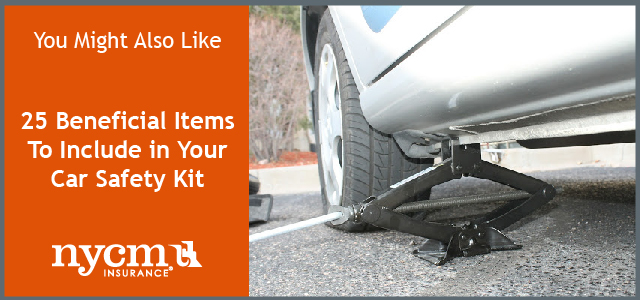How to Change a Tire

Finding your vehicle with a flat tire, or worse yet, having a tire go flat
while driving, is enough to put a damper on anyone’s day. While every vehicle
is different, we’re here to provide you with a general ten-step guide on how to
change a tire and other things to be aware of during the process. To learn
more, continue reading below.
Step 1:
Assess Your Surroundings
If you approach your vehicle and realize there
is a flat tire, first, decide if you are on stable
ground to change it then and there. If your car is parked on a hill, safely
move the vehicle to flat ground to change the tire. You should always make sure
the ground under your vehicle is flat and stable before using your jack.
Step 2:
Apply Your Safety Measures
After ensuring your vehicle is in a safe location, there are a few additional
safety precautions you should take. If you carry caution signals like cones with you, set those
around your vehicle. If you don’t, turning on your flashers is a good idea if
you are on the side of the road.
Blocking your tires with wheel chocks is ideal
to prevent your vehicle from rolling off your jack. If you don’t have wheel
chocks or blocks, you can improvise with heavier objects around you. If you
don’t have access to anything to block your wheels, applying your parking brake
can help, but be aware that it isn’t enough to prevent your vehicle from
rolling.
Perhaps the most important safety measure you
can take when changing your tire is to never
put your body under the vehicle.
Step 3:
Locate Your Vehicle’s Manual, Spare Tire, Jack and Tire Iron
Your vehicle’s manual may advise what you’ll
need for your specific model when it comes to changing your tire. It
will also tell you where your spare tire, jack, and tire iron are located and
how you can access them.
Step 4:
Remove Hubcap and Loosen Lug Nuts
If you have hubcaps, you will need to remove
them to access your lug nuts. Be sure to first loosen your lug nuts while your
car is on the ground. When your car is on a jack, you don’t have anything
holding the tire still, so if you’re trying to loosen the lug nuts when the
tire is in the air it will just spin, adding time and aggravation to your
tire-swap. Don’t fully remove them in this step, just loosen them so they’re
easier to remove later on.
Step 5:
Secure Your Jack and Raise Your Vehicle
After properly positioning the jack, raise
your vehicle until the flat tire is about six inches above the ground.
Step 6:
Remove the Old Tire and Mount the Spare
Once your tire is in the air, finish removing
your lug nuts and remove your tire. Next, mount the spare tire and screw on
your lug nuts, but don’t tighten.
Step 7:
Lower the Vehicle and Tighten Your Lug Nuts in a Star Pattern
The star pattern will assure the wheel is
drawn down evenly and all the nuts are equally torqued. Start with one lug nut,
then go to the furthest across and so on, making a star as you go.
Step 9:
Place Your Tire Jack, Iron, and Old Tire Back in Your Vehicle
Make sure to replace your tire iron and jack
in your vehicle should you need it in the future. You’ll also want to take your
old tire with you for proper disposal.
Step
10: Replace Your Spare Tire
Spare or “donut” tires are not meant to be
permanent solutions and should only go between 50-70 miles or according to your
manual. Be sure to replace your spare with a regular tire as soon as possible.
Also, depending on the spare you used, you may need to replace that as well. Be
sure to reference your manual for best practices for your type of spare tire.
Following the above ten steps to changing a
flat tire can make the difference between an inconvenience and a disaster. Most
car insurance policies have the option to add roadside
assistance, a service which can help you out, should you not have
the means to replace the tire yourself. Contact your local agent today to talk about your roadside
assistance coverage and be sure to carry the number with you should you need to
use it!



